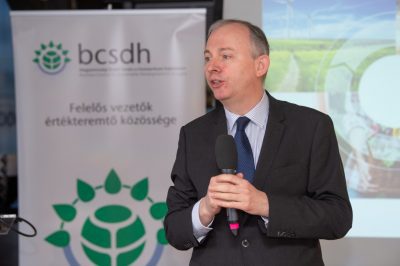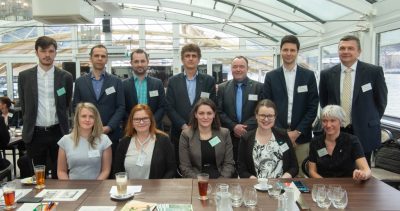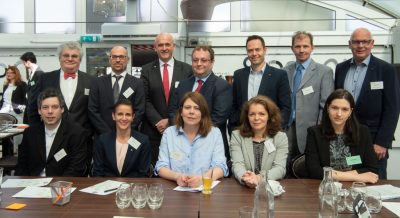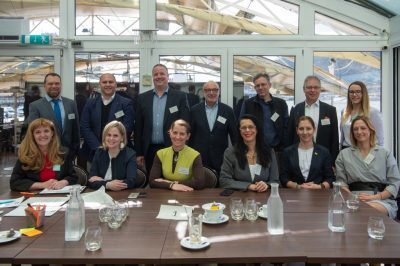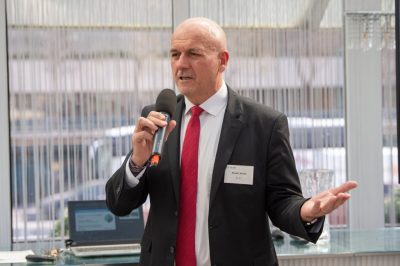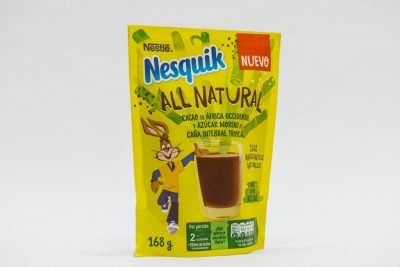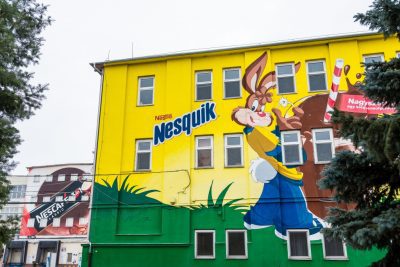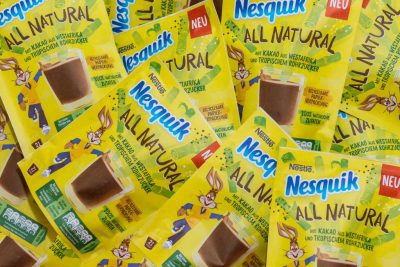Nearly 30 companies from the plastics and consumer goods value chain commit over $1.0 billion to help end plastic waste in the environment
BASF supports the Alliance to End Plastic Waste to drive solutions that help to solve the world’s plastic waste problem
BASF today co-founded a global alliance of nearly 30 companies to advance solutions that reduce and eliminate plastic waste in the environment, especially in the ocean. The Alliance to End Plastic Waste (AEPW) has committed over $1.0 billion with the goal of investing $1.5 billion over the next five years to help end plastic waste in the environment. New solutions will be developed and brought to scale that will minimize and manage plastic waste. This also includes the promotion of solutions for used plastics by helping to enable a circular economy.

“We strongly support the aim to reduce plastic waste in the environment,” said Dr. Martin Brudermüller, Chairman of the Board of Executive Directors and Chief Technology Officer of BASF SE, who supported setting up the Alliance from the beginning. “We are co-founding the Alliance to End Plastic Waste, because we want to drive and promote solutions that will effectively help solve the world’s plastic waste problem,” explained Brudermüller. “Plastics are efficient materials that can save resources and enable health, safety as well as convenience benefits for society. These benefits could be contradicted, if plastics and their waste are neither used nor disposed nor recycled in a responsible manner.”

Understanding where the plastic waste originates from is key. Research by the Ocean Conservancy shows that plastics in the ocean predominantly originate from litter on land. Most of the plastic waste is spread through rivers and can be traced back to ten major rivers around the world, mainly in Asia and Africa. Many of these rivers flow through densely populated areas which have a lack of adequate waste collection and recycling infrastructure, leading to significant waste leakage. The AEPW will initiate actions where they are most needed. This will include projects that contribute to solutions in four key areas:
- Infrastructure development to collect and manage waste and increase recycling;
- Innovation to advance and scale up new technologies that make recycling and
recovering plastics easier and create value from post-use plastics; - Education and engagement of governments, businesses, and
communities to mobilize action; and - Clean-up of concentrated areas of plastic waste in the environment, particularly the major conduits of waste, such as rivers, that carry land-based waste to the ocean.
“Everyone agrees that plastic waste does not belong in our oceans or anywhere in the environment. This is a complex and serious global challenge that calls for swift action and strong leadership. This new alliance is the most comprehensive effort to date to end plastic waste in the environment,” said David Taylor, CEO of Procter & Gamble, and chairman of the AEPW.
The alliance is a not-for-profit organization that includes companies from across the global plastics and consumer goods value chain: chemical and plastic manufacturers, consumer goods companies, retailers, converters, and waste management companies. The alliance will work with governments, intergovernmental organizations, academia, non-government organizations and civil society to invest in joint projects to eliminate plastic waste from the environment.

The engagement of BASF in the alliance reinforces the company’s engagement for a responsible handling of plastics. “One important measure to end uncontrolled entry of plastics into the environment is to build up closed circles where plastic can be used as new raw material. The chemical industry plays an important role in innovating and implementing large-scale processes to convert plastic waste into new products,” said Brudermüller. One example of how BASF is working on innovative technologies that promote the recovering and recycling of plastics is its recently initiated ChemCycling project. Together with its customers and partners, BASF developed and manufactured the first pilot products based on chemically recycled plastic waste.

BASF is also actively implementing the international program Operation Clean Sweep® globally in all its plastic pellet production sites, which aims to prevent plastic pellet loss along the value chain through behavioral, organizational and technical measures. Furthermore, BASF engages in various collaborations and association projects (for example, World Plastics Council, Ellen MacArthur Foundation, CEFLEX) on waste management and education.
The following companies are the founding members of the Alliance to End Plastic Waste: BASF, Berry Global, Braskem, Chevron Phillips Chemical Company LLC, Clariant, Covestro, CP Group, Dow, DSM, ExxonMobil, Formosa Plastics Corporation USA, Henkel, LyondellBasell, Mitsubishi Chemical Holdings, Mitsui Chemicals, NOVA Chemicals, OxyChem, PolyOne, Procter & Gamble, Reliance Industries, SABIC, Sasol, Shell, Suez, SCG Chemicals, Sumitomo Chemical, Total, Veolia, and Versalis (Eni).
More information
Follow the live broadcast of the global launch of the Alliance to End Plastic Waste on Wednesday, January 16, 2019, from 3:00 p.m. to 3:30 p.m. (CET) here: www.endplasticwaste.org/live.
Find more information on BASF’s membership in the Alliance to End Plastic Waste here and the new website of the Alliance to End Plastic Waste here.
You can find TV footage of BASF’s ChemCycling project in our TV-service here.
About BASF
At BASF, we create chemistry for a sustainable future. We combine economic success with environmental protection and social responsibility. The more than 115,000 employees in the BASF Group work on contributing to the success of our customers in nearly all sectors and almost every country in the world. Our portfolio is organized into six segments: Chemicals, Materials, Industrial Solutions, Surface Technologies, Nutrition & Care and Agricultural Solutions. BASF generated sales of more than €60 billion in 2017. BASF shares are traded on the stock exchanges in Frankfurt (BAS), London (BFA) and Zurich (BAS). Further information at www.basf.com.



